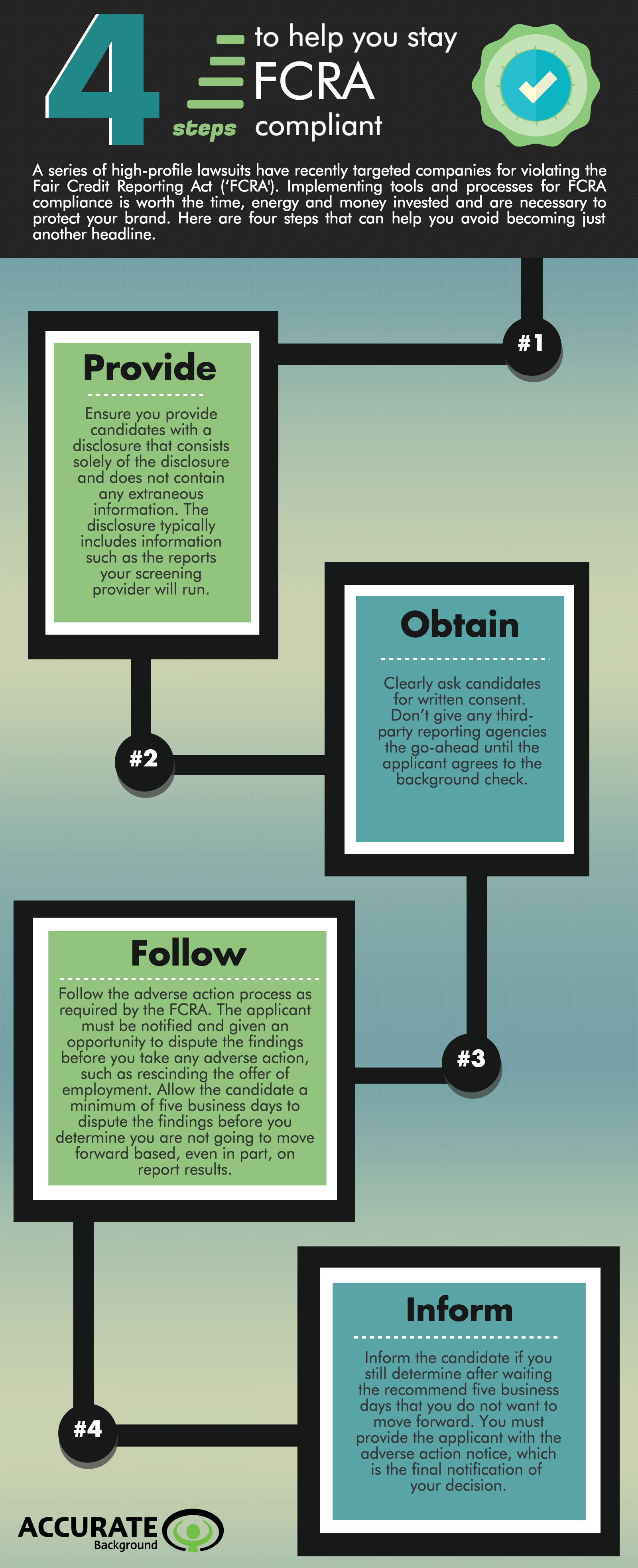Over the past few years, a number of high-profile lawsuits have targeted companies for violating the Fair Credit Reporting Act (‘FCRA”) and that number is continuing to increase. Accurate Background’s latest FCRA Best Practices white paper and corresponding infographic cut through the complexities and provide employers with four easy to understand guidelines for complying with FCRA.
The FCRA is a federal law designed to protect consumers and ensure transparency for applicants by placing certain responsibilities on consumer reporting agencies (CRAs) and end users of consumer reports. The recent trend of litigation deals with responsibilities placed on the end users, in particular employers. These responsibilities include requiring employers, prior to obtaining a background check, to provide applicants and/or employees with a disclosure notifying them that a background report will be performed. The below infographic outlines the basic requirements under FCRA that employers must follow to protect their brand and the rights of their candidates.

Please note: The information provided in this blog is strictly for educational purposes. It is not intended to be legal advice, either expressed or implied. Accurate Background recommends that you consult with your legal counsel regarding all employment regulations.



